Text
“Macaria, Polyxena, Iphigenia. They are freed from their fathers in a moment when their fathers condemn them to immolation; they turn to their own use the freedom of choice that characterized the kyrios, by taking over the sacrifice imposed on them and turning it into their death, a death that is fully their own.”
— Nicole Loraux, Tragic ways of killing a woman
#YES. THIS SO MUCH 😭😭#finding agency after she had been condemned 😭 freedom only after the fall 😭#⋅𖥔⋅ ── to be the altar the flesh and the knife﹕𝐂𝐇𝐀𝐑𝐀𝐂𝐓𝐄𝐑 𝐒𝐓𝐔𝐃𝐘.
344 notes
·
View notes
Text
“At least I have the flowers of myself, and my thoughts, no god can take that; I have the fervour of myself for a presence and my own spirit for light; and my spirit with its loss knows this; though small against the black, small against the formless rocks, hell must break before I am lost; before I am lost, hell must open like a red rose for the dead to pass.”
—
H.D., Eurydice VII (via arpeggia)
The whole thing is sooooo great.
(via deusvolt)
2K notes
·
View notes
Photo

Redeemer King
#blood? thorn? crown? rose??? HER ENTIRE CONCEPT STFU JKSDKJFAJKD#⋅𖥔⋅ ── she who waters her roses with blood﹕𝐀𝐄𝐒𝐓𝐇𝐄𝐓𝐈𝐂𝐒.
5K notes
·
View notes
Photo
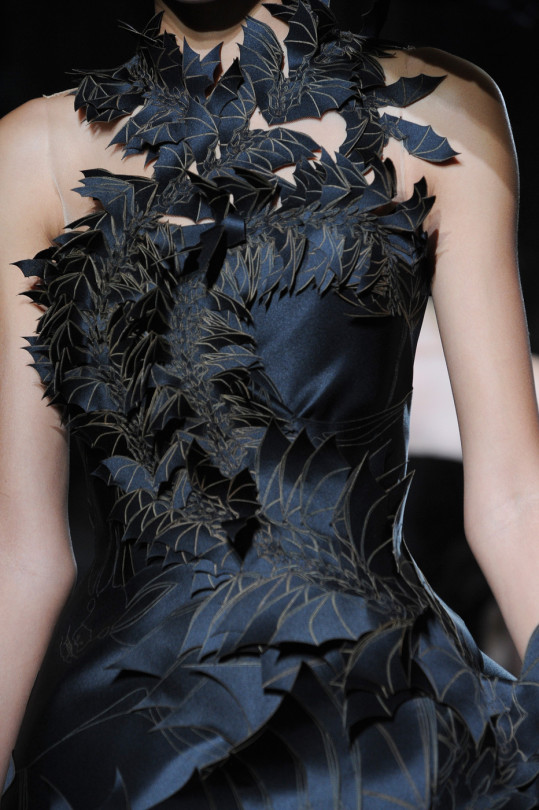
Giles Spring/Summer 2014
3K notes
·
View notes
Text
“The paradox of volcanoes was that they were symbols of destruction but also life. Once the lava slows and cools, it solidifies and then breaks down over time to become soil– rich, fertile soil. She wasn’t a black hole, she decided. She was a volcano. And like a volcano she couldn’t run away from herself. She’d have to stay there and tend to that wasteland. She could plant a forest inside herself.”
— Matt Haig, The Midnight Library
32 notes
·
View notes
Text

Christian Dior Couture automne-hiver 2019-2020
#YES THIS IS REVNA'S FC#ABBA AND REV FREAKY FRIDAY AU !!! YOU HEARD IT HERE FIRST !!!#⋅𖥔⋅ ── she who waters her roses with blood﹕𝐖𝐀𝐑𝐃𝐑𝐎𝐁𝐄.#edit: *announcer voice* jane has approved of this message
258 notes
·
View notes
Photo

‘Gbenga Adeoba, from “A Short Essay on Drowning”, Exodus
6K notes
·
View notes
Text
“That long-drawn, wavering howl has, for all its fearful resonance, some inherent sadness in it, as if the beasts would love to be less beastly if only they knew how and never cease to mourn their own condition. There is a vast melancholy in the canticles of the wolves, melancholy infinite as the forest, endless as these long nights of winter and yet that ghastly sadness, that mourning for their own, irremediable appetites, can never move the heart for not one phrase in it hints at the possibility of redemption; grace could not come to the wolf from its own despair, only through some external mediator, so that, sometimes, the beast will look as if he half welcomes the knife that despatches him.”
- Angela Carter, The Company of Wolves
35 notes
·
View notes
Photo
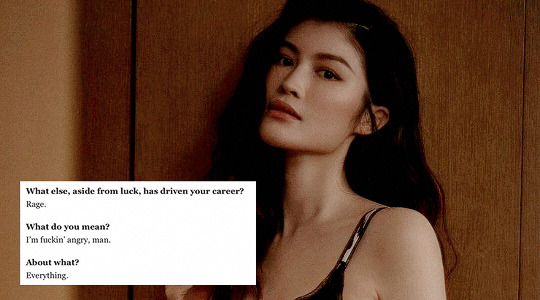

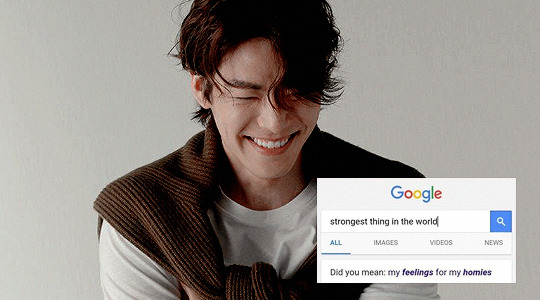

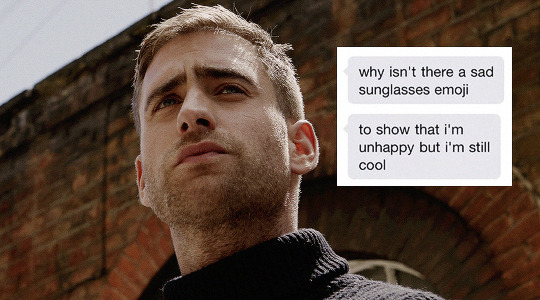
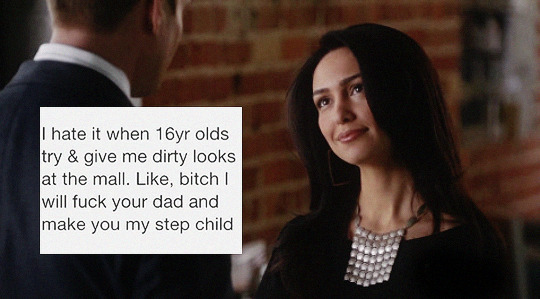

INCORRECT THC QUOTES
@ofconquest, @ofarael, @revnavolk, @revelationes, @raysofromilda, @venenumdei
12 notes
·
View notes
Photo

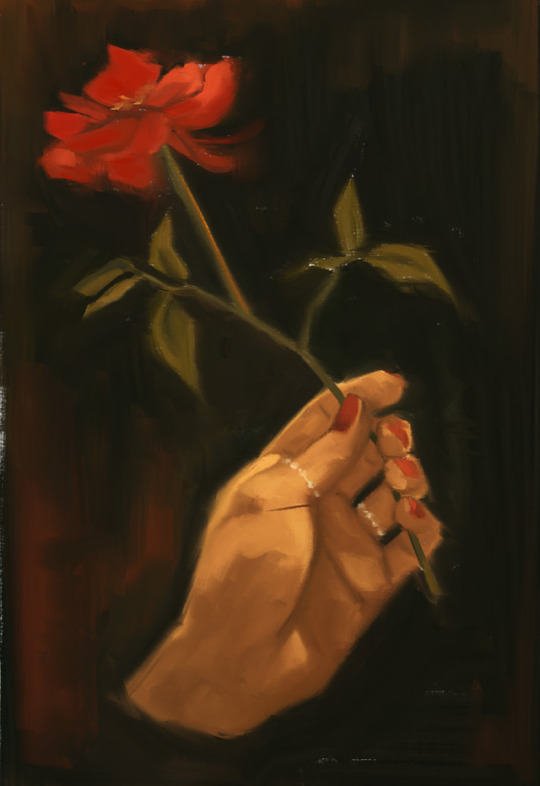
Incision
twitter. ig. merch
68K notes
·
View notes
Photo
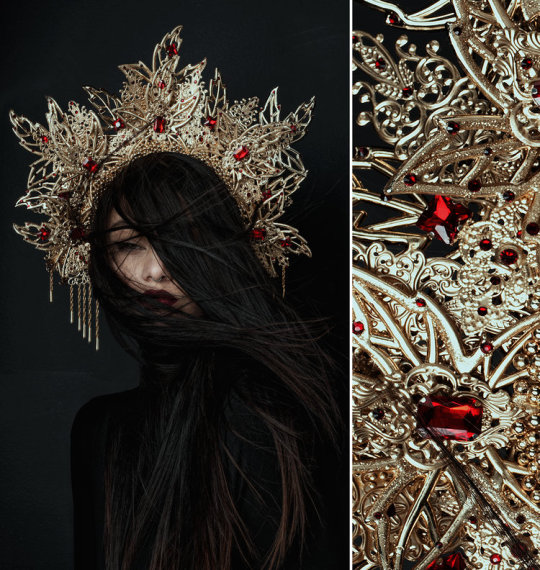
Lory Sun
2K notes
·
View notes
Photo
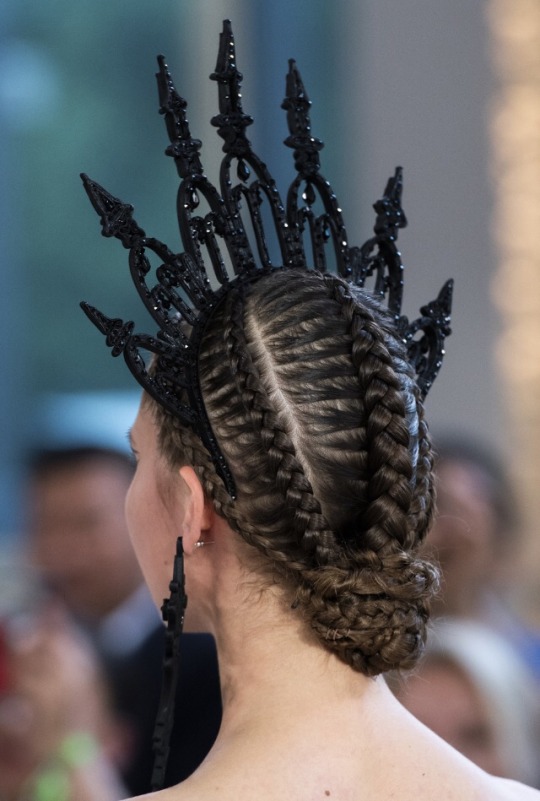
Guo Pei Haute Couture Fall 2018
1K notes
·
View notes
Photo


173K notes
·
View notes
Text
𝐉 𝐔 𝐃 𝐀 𝐒
There is a moment where he catches her gaze, and in that moment, Abaddon’s eyes reveal in magnitudes the suspicion she holds towards her kind. Her instinct to first vilify them, the angels, is one of the things about her Judas has admittedly grown fondest for. He shares it in equal measure. His distrust for the angels is bred from a rotting grudge against their God. Abaddon’s, though? Judas must smile, because her bitterness towards the celestials comes from a place so much more beautiful than his own. She knows the depths of what cruelty they are capable of, because her hands and heart, sewn from the same angelic fibers, are capable of the same horrors. Worse, perhaps.
He thinks that’s breathtaking. What’s more beautiful than calculated cruelty, and what’s more cruel than God’s messengers?
He keeps his sword readied by his side, and the air remains still and quiet. When Abaddon resumes flight, Judas follows, keeping a wing’s length away from her as he zags through crisp skies. In the chill, he feels his muscles tense, wings held defensively close to his body, his movements increasingly deliberate. When she cuts the silence with a quip, claiming they hold nothing worth a thief’s effort, he laughs as he always would; he makes no mention of the priceless, stolen angelic artifact that he holds in a satchel tucked on his side, reserved as a customary hello gift for Azazel. It would make a pretty prize for any bandit that might’ve thought to target them — or, perhaps, a shiny enough distraction with which to evade their hunters. Judas says nothing of it, merely laughs along with her. “Don’t tell me this is the day you finally decided to sell this pretty head?” he jabs, challenging her with a smirk. “Delivering me to my end, Abaddon?” He teases her; it’s written in the play of his lips, the toying of his brow, the dance of his eyes. Still, one day or another, he wouldn’t put it past her. He knows better than to ever truly call her incapable of betrayal. She’s fallen farther than most.
Again, he thinks that’s beautiful.
What moment of fleeting closeness they’d found in laughter disappears as dozens of arrows rain upwards from the treetops. Instinct quickly ushers his blade upwards in defense. The longsword he’d brought for the journey is far from an ideal instrument, but its surface area outmatches that of Abaddon’s dagger tenfold. He turns his movements towards her now, flying closer to her side. With a parry of his sword, he deflects what arrows he can from before the both of them, metal tips clamoring against the steel of his blade, limbs and wings narrowly dodging those he misses. Hidden safe beneath the cover of the forest, whoever it was that sought to spill Infernum’s most sacred blood had arrived in preparedness, armed with tact and strategy in addition to an apparent abundance of arrows. The question was not, can we outlast them? It was, for how long?
While, yes, it remains true that it was he who had chosen not to heed warnings, turned down a Holy Land escort, and boldly thought to journey unaccompanied, Judas doesn’t dare dwell for a moment on his own responsibility for the predicament they find themselves in. There simply isn’t the time.
It’s an unmistakeable sound that he hears next — the pierce of an arrowhead through soft flesh, and soon after, a sharpened gasp cuts the air. “Abaddon!” he calls, and though he can only pull his eyes from the wall of oncoming arrows for a moment, his peripherals can make out her shape. Movements angled towards her now, he lunges forwards. In his right hand, his sword acts as a makeshift shield; it does so poorly, and though Judas is able to avoid major injury, he feels a sting in his arms where flying arrowheads narrowly miss, shot close enough to leave a scratch. His left hand extends before him, reaching for her. A second arrow finds her before he does, and as she slips, he watches her fall. It’s now the second time he’s witnessed it — but this time, he watches from above her. From this view, as he reaches for her hand, she does not fall towards his silken palm, but away from it, her shadow shrinking smaller beneath him until the thick of the forest has swallowed her whole.
Judas parses his options as quickly as the archers’ arrows continue to fly towards him.
One — he can leave. There is no telling what danger lurks below. Abaddon has already fallen at their hand; how can following her down to meet his own demise help their kingdom? He’d be better off to run, to save his skin, tell their story, and send a search party once safe in the Holy Land. Perhaps she’s wounded below; perhaps they’ll find and retrieve her; perhaps she’ll even find her own way back. Judas wonders for a stark moment if her injuries could be fatal. She’d be mourned, and he’d be among those bereaved, but are there not still many angels left that could fall in her place? There exists only one Great Betrayer.
Two — he can follow her down, and, presuming she still breathes, finish her. Why, though? What end would it further, what purpose would it serve? As he considers it, he doesn’t examine either consequence. The chance presents itself, and so of course he entertains it, if only for a moment. He could get away with it, he notes, confidently. There are no witnesses.
Three — he can follow her down, and, presuming she still breathes, help her. It’s the thought that occurs last, but the one he reasons in favor of. Should he arrive in the Holy Land without Abaddon, it will matter not what cognac-smooth story his lips spin. His legacy precedes him; whether he abandon her or kill her, he’ll be painted a traitor regardless. He must try. There is no other option.
If he is to survive the journey, and to be welcomed, believed, and corroborated on the other side as he boldly reports an attack in a time of peace, he needs her. Judas acknowledges it for a moment, his need for Abaddon — a need he’d never yet looked in the eye, never spoken aloud. A need he only confronts as he might now lose her. Wanting isn’t absent, though. He has no reason to will her dead — in fact, many to will her alive. In all the millennia since her fall, she’s yet to prove herself disloyal, yet to grind against his nerves like most do in time. He wants to help her, decides, as much as he needs to.
With a burst of demonic speed, he propels himself downwards and ducks under the treetops’ cover. In the thick of the branches, he’s out of sight — safe from the arrows’ barrage. He remains nimble in the spaces amongst the trees, zipping through brush, until he finds her. On one foot and one knee, he lands before her on the forest floor, and sturdy black wings form a shield that envelops the both of them. He looks at her, sees her hurting, and for a moment, with clenched jaw and wide eyes, he chooses to show concern. It’s surprisingly quite easy to do, while dancing with what it might be like to lose her by any choice but his own — as if he hadn’t toyed with taking her life for the game of it all just moments before.
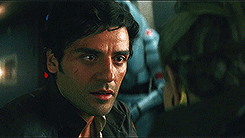
“You’re hurt,” he begins, but he looks into her eyes, not at her wounds, as he grabs her by the hand. “You’re going to be okay, but we need to move. Quickly. They know where we fell, and won’t be far behind.” His grip on her hand tightens. “What can I do for you?”
⋅𖥔⋅ ──
She falls.
She falls, morning light reflecting off her pearl-tipped feathers like a haloed silhouette.
Once, Abaddon had rejoiced at the image — had embraced it as she would a parting kiss from her Father, hand reaching forward in the same way the tides roll back to meet the setting sun every night, even as they know the sun will never truly kiss their waters; just as they know the light is only casted upon them, is only granted to them, and the horizon is a door without hinges.
Still, the tides pull. Still, Abaddon had closed her eyes, basking in the reminder of His presence — a reminder of her divinity; of hope everlasting and the promise of warmth within the abyss. A reminder that it is only through cracks upon stone that the light within can bleed out; it is only through brokenness, only through the fall — and what could injure more thoroughly than a heart dropped from the sky?
Now, she wonders if it had really been a halo upon her form after all — if it had been a blessing after all — or simply an outline of a tightened noose in the sun.
Because when she had fallen, light had not spilled from the fractures. No; there had only been darkness. She had been broken, battered. But in Hell, even her blood gleamed black.
This time, when Abaddon falls, the landing is softer. There is a familiarity in the darkness that embraces her, in the arms that hold her. There is the brokenness within her, upon her. Again — never the breaking of dawn. And upon her lips, the same name that she had spoken, centuries ago.
“Judas.”
Slightly breathless, as if the air within her lungs is hitched upon something sharper; as if the brokenness is not dawn but the breaking of a fever — intensity that weighs upon the space between them, velvet and smoky and deliberate. Because a name spoken in the darkness is not simply a name. A name spoken in the darkness is an undressing, syllables caressed and softly lingering on the tongue like nectar. Like poison.
A name spoken in the darkness has no place to hide.
And Abaddon speaks it now just as she had spoken it the first time: softly. Not reverently. Perhaps not even gratefully. But knowingly. That Judas had caught her with the same ease in which he would have pushed her, if it suited his needs. She speaks his name and it sounds like the song of a nightingale before it impales itself upon a thorn — just as haunting, just as accepting. She speaks his name and it sounds like I’d rather be betrayed by you than saved by anyone else. It sounds like choosing.
Once, she had reached for God’s hand.
Now, it is Judas that reaches for hers.
Abaddon gives a silent shake of her head as he speaks — whatever that can be done to ensure their survival, he will do. Whatever she needs, truly needs, he will provide without her asking; he will garner from the way she moves, from the way she breathes. Instead, whatever she asks of him aloud will expose vulnerabilities that are deeper than the blood that stains the fabric resting upon her shoulders, and Abaddon merely gives a small smile as she lifts their clasped hands to her lips, pressing a kiss upon the space where their skin meets. A kiss for The Great Betrayer.
A reminder that she knows who is he. Her gaze doesn’t stray from his. A warning.
Intimacy is nothing new to a relationship that is as tacit as the crowns resting upon their heads, but Abaddon still briefly pauses as she feels his pulse against her lips, alongside hers — like unspoken sentences that finish each other all the same.
“East.”
An impish smile dangles off a corner of her mouth as she pulls away, nodding towards the direction. “We’re right past the border. There should be parties from the Holy Land scouting the woods for travelers in need of assistance.” She straightens at the sound of hoofbeats in the distance, biting back a hiss at the sharp pain in her shoulder. “Were you a gambling man back in your mortal days, dear Judas?”
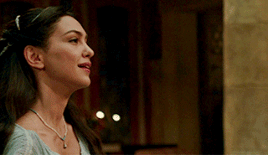
A flash of teeth as the ground begins to reverberate with the nearing of the party, either eager to help, or eager to harm. Abaddon does not release his hand.
#i cut length.....i think :-)#lets close out this thread on urs??? mebe#⋅𖥔⋅ ── be the thing that buries me﹕𝐉𝐔𝐃𝐀𝐒.#⋅𖥔⋅ ── 𝐓𝐇𝐑𝐄𝐀𝐃𝐒 : judas.#⋅𖥔⋅ ── 𝐃𝐀𝐓𝐄 : first week of the new moon.#⋅𖥔⋅ ── 𝐄𝐕𝐄𝐍𝐓 : the eulogy of the stars.
4 notes
·
View notes
Note
🥀 pwease
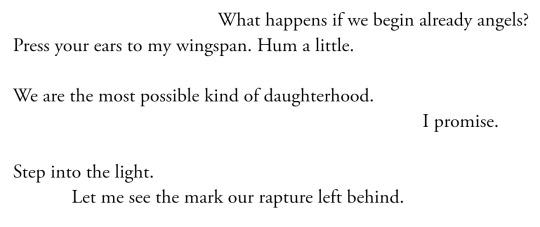


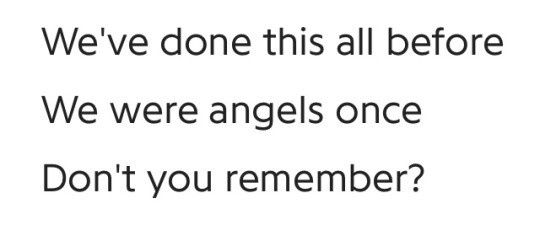
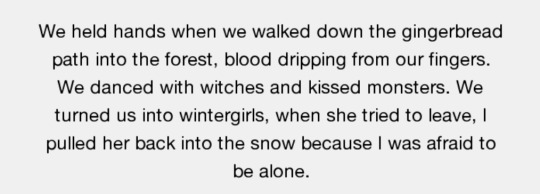

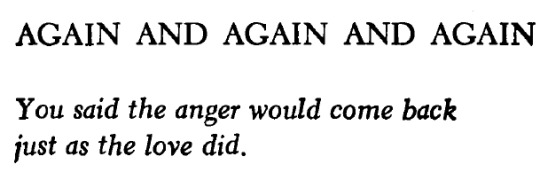

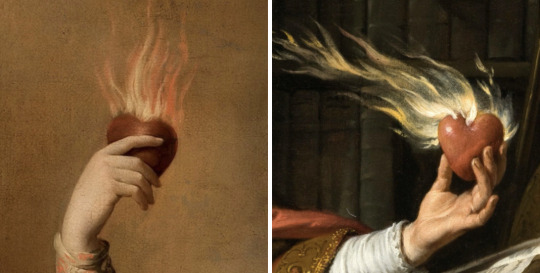
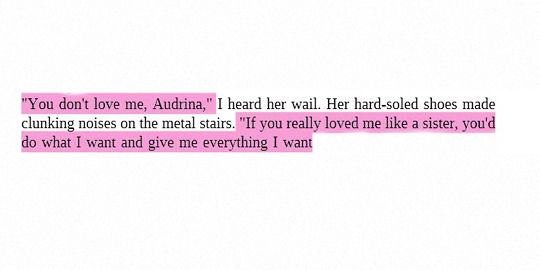



Bradley Trumpfheller, Reconstructions / Holly Warburton, Swim / Sophokles, from Elektra; translated by Anne Carson in An Oresteia / HELEADES by Paola Padron / Red House, Morten Schelde (2013) / Allegory of Charity, Francisco de Zurbarán; Saint Augustine, by Philippe de Champaigne / Dave Malloy, Natasha, Pierre & the Great Comet of 1812 / Richard Siken
0 notes
Quote
She glows. Her heavy strands of black hair slide / Like serpents over somber, blood-red plush. / She stands there as a rose within the night. / The dark-red rose so deep within the night.
Gertrud Kolmar, from Dark Soliloquy: The Selected Poems; “Rose in the Night,” (via 89words)
3K notes
·
View notes
Photo


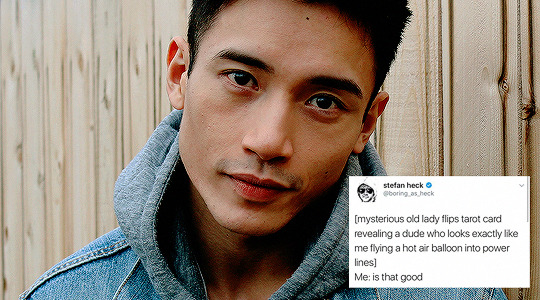

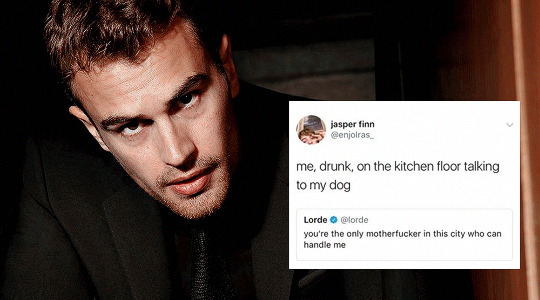



INCORRECT THC QUOTES
@ofncrissa, @salomei, @jasperiche, @lucariche, @cassicl, @bastienavalos, @ofephemera
23 notes
·
View notes